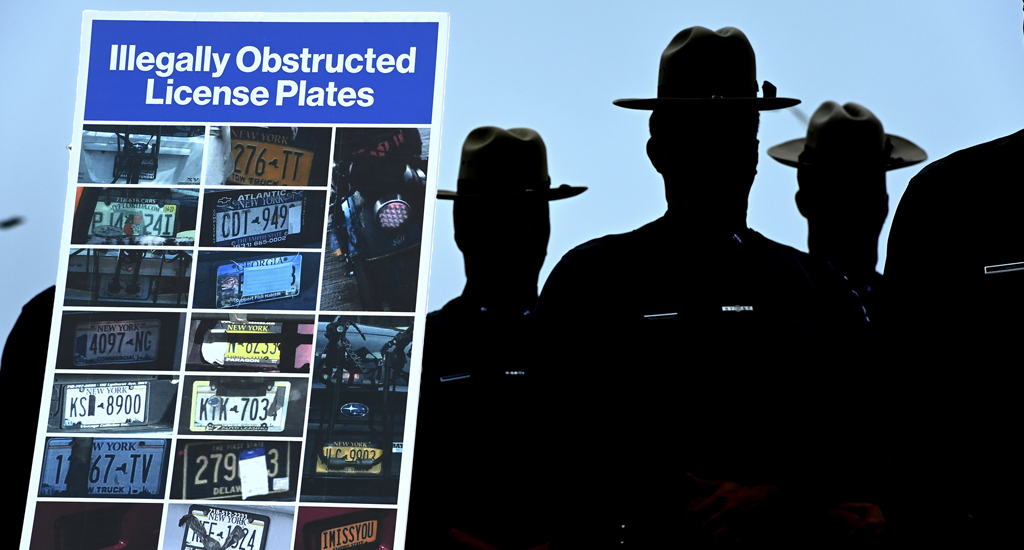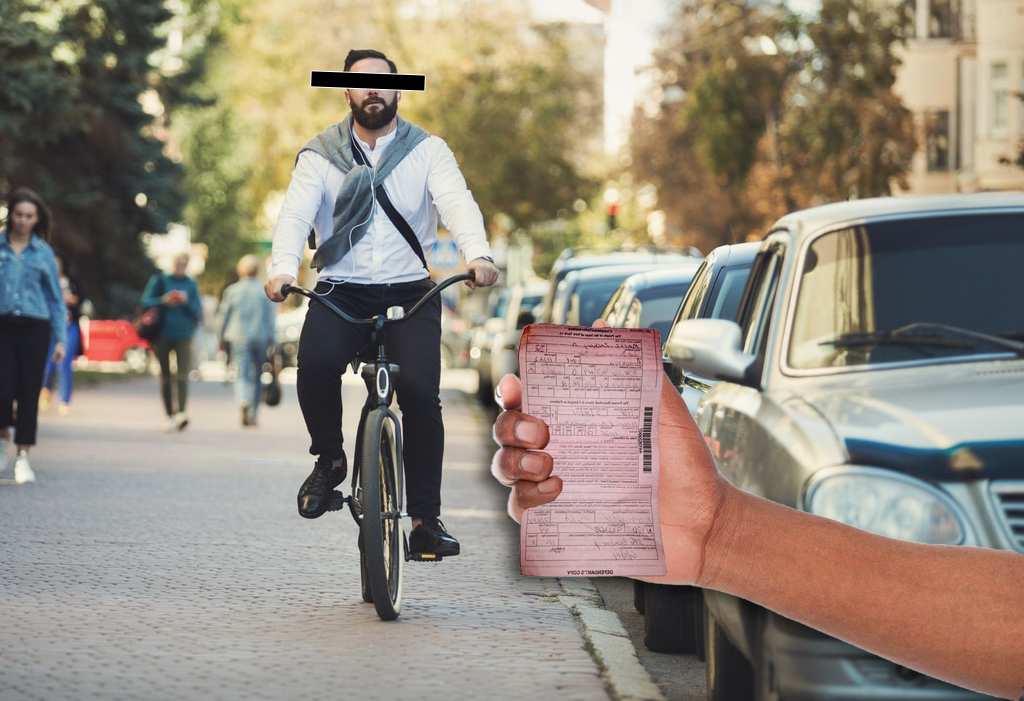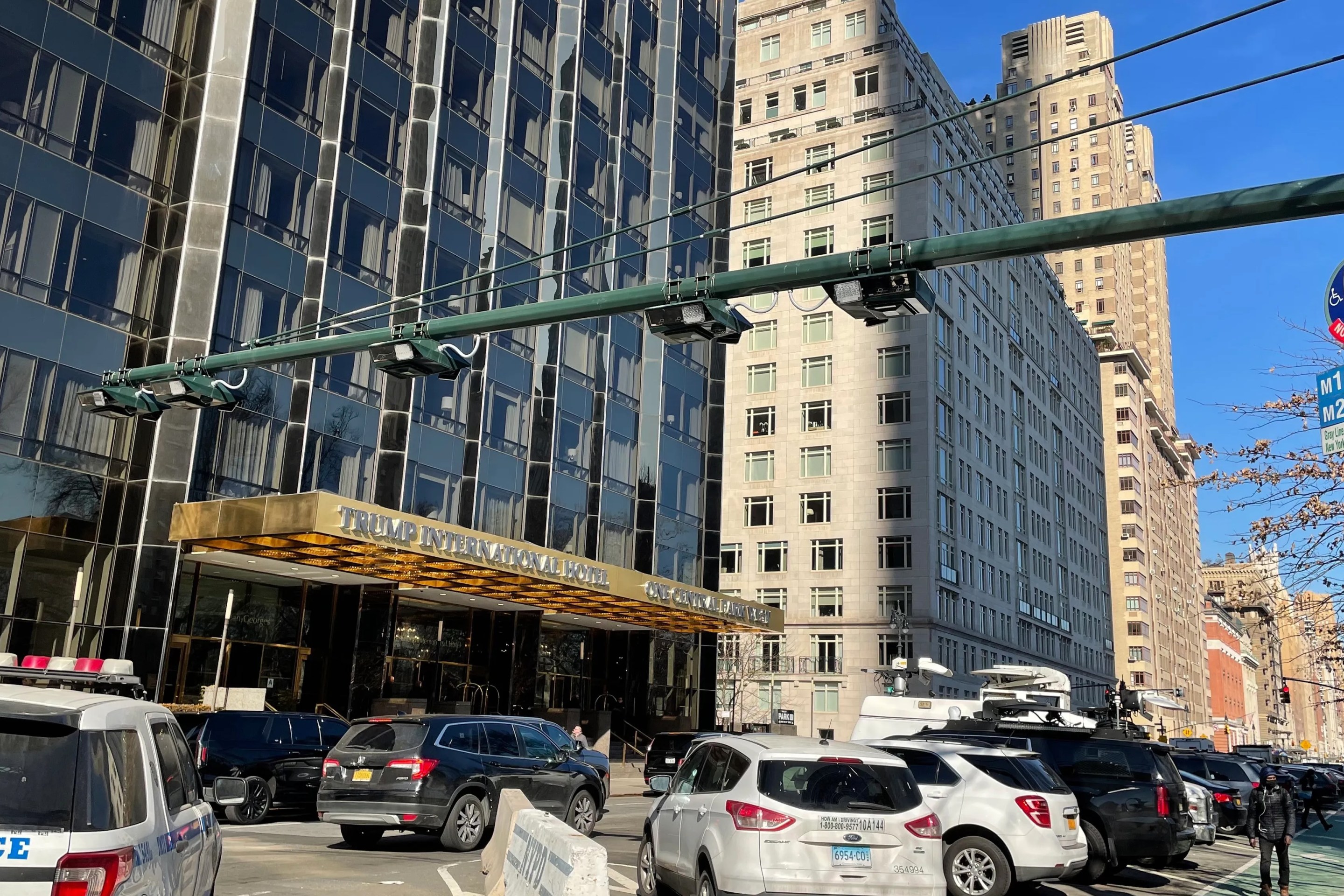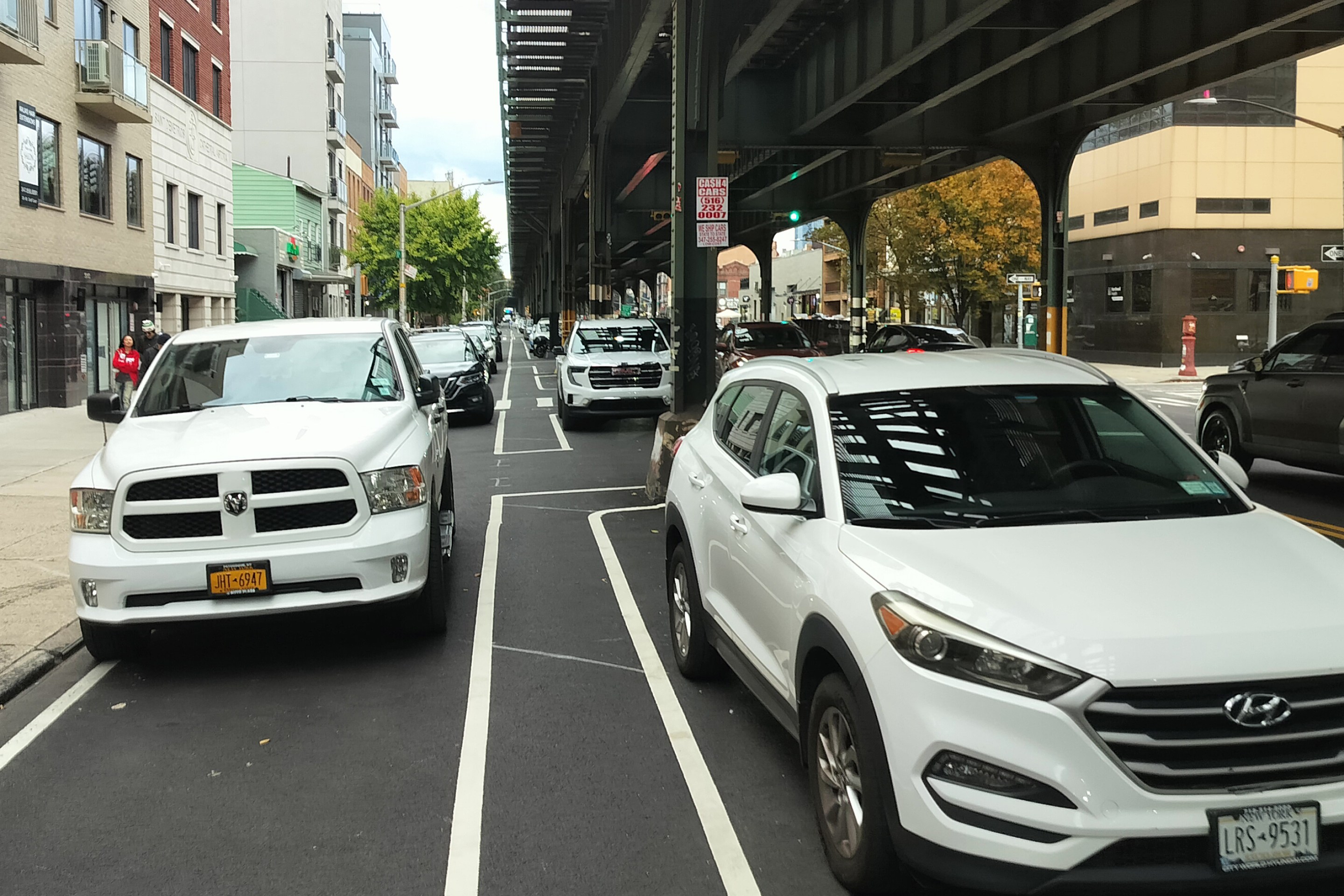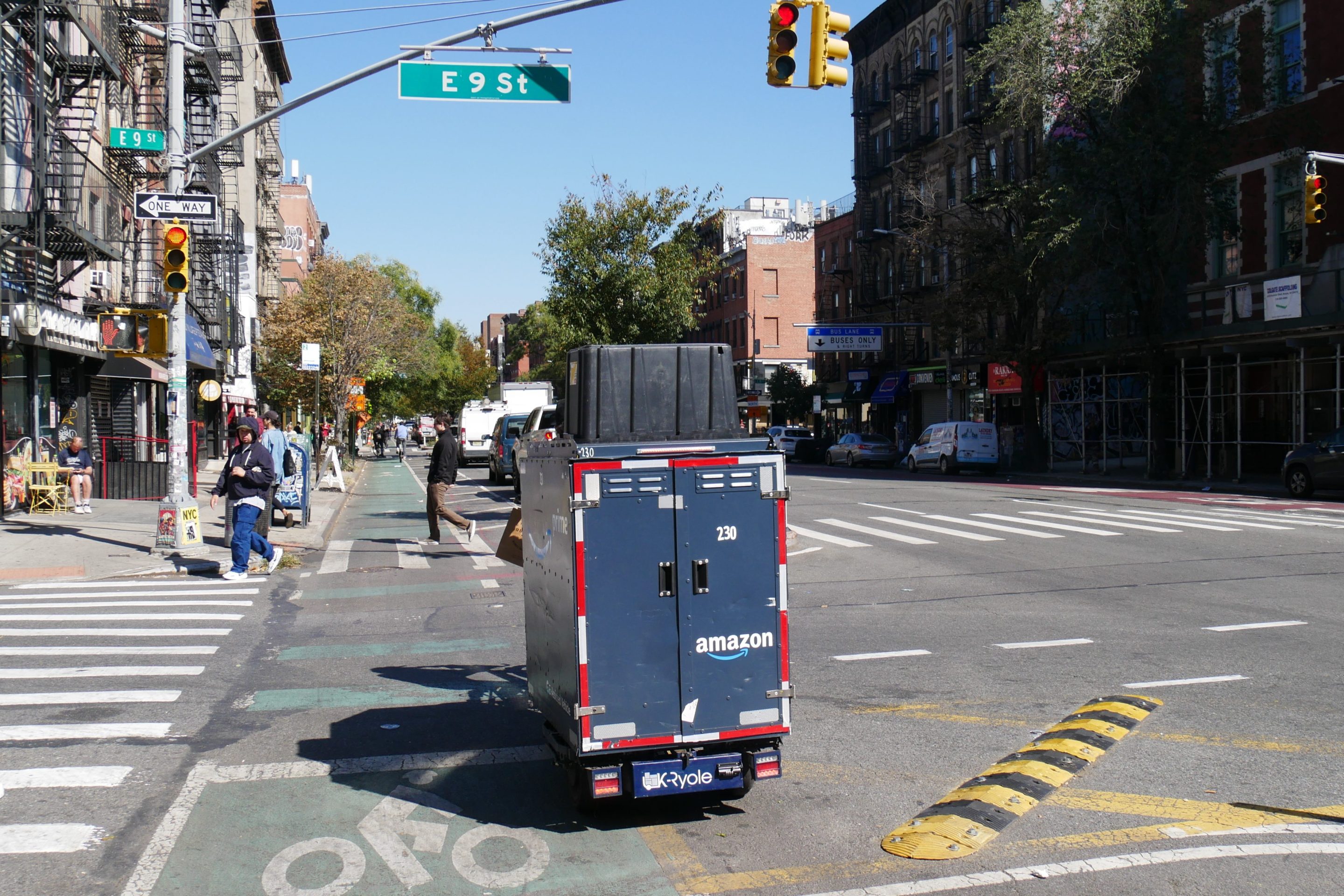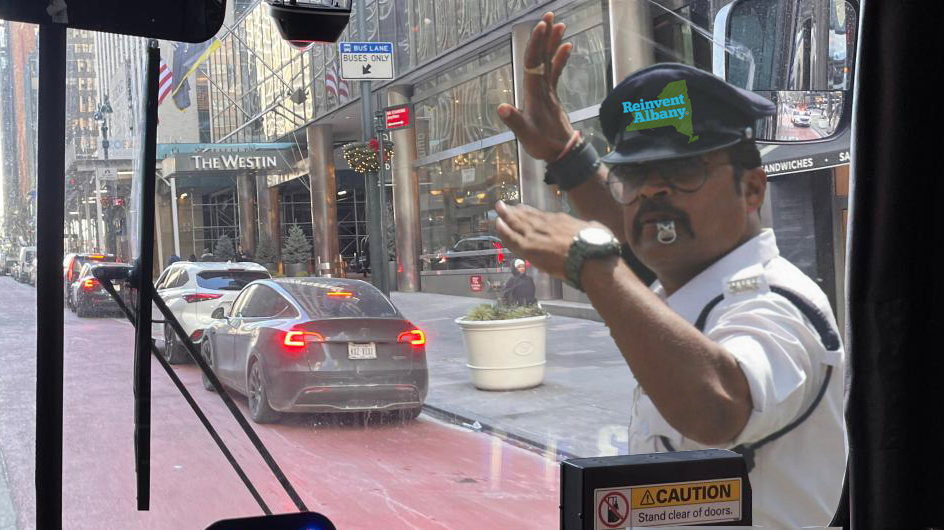For whom the toll tolls? It tolls for thee, toll evader.
Gov. Hochul and state legislators agreed to a series of provisions in the state budget to crack down on toll evasion, a growing problem at MTA facilities that threatens to undermine congestion pricing when it begins this summer.
Per the terms of the budget that passed on Saturday, the fine for covering a license plate by glass or plastic, or having a fake license plate at all, will rise from $50 to $300 to $100 to $500. The new higher fine will also apply to drivers caught with license plates that are defaced or otherwise have any of the numbers covered.
In addition, the state will now ban the sale of license plate covers and fake plates that look like a real one but hasn't actually been issued by a state motor vehicles agency; and the state Department of Motor Vehicles will be able to suspend or revoke the registration of a vehicle that belongs to a repeat offender.
Anyone convicted of obstructing his or her license plate will have to surrender the plate cover to the state, and the enforcement of unpaid tolls will be aligned with the enforcement of unpaid parking tickets, meaning that toll scofflaws could have their vehicles booted or towed. If a driver is convicted three times for covering a plate in five years, the DMV will be able to suspend the car's registration for 90 days, similar to how the DMV can do so when a driver racks up three toll violations in five years.
The state is also raising the fine for "repeat" fare evaders, establishing a $150 fine for anyone caught fare evading three or more times in four years.
To reach the bargain on enhanced toll enforcement, the governor agreed to legislative demands to improve the appeal process and communications from state tolling authorities, with a requirement that tolling agencies like the Port Authority and the MTA send text message and email notifications to people who owe tolls — the so-called "Toll-Payer Protection Act."
Hochul also had to tweak the language in her initial proposal around ghost plates. The governor's proposal in January gave police officers the authority to seize a license plate cover from someone the officer pulled over. However, the final deal gives police officers discretion to allow a driver with an obstructed plate to fix the issue in front of the officer who pulled them over, a situation critics say is ripe for abuse.
This clause in new supposed anti- #defacedplate legislation is almost an explicit invitation for every badge-bearing good ol' boy to run out and get a thumb-removable license plate cover. Embeds 'courtesies' in law. Anyone know where this language came from? pic.twitter.com/T1WTzczp99
— Noah McClain (@NoahMcClain10) April 22, 2024
The discretionary language does mirror the same language in vehicle and traffic law that allows a police officer to let someone fix other defects on their car if they're pulled over.
Hochul, and disgraced former Gov. Andrew Cuomo, had tried for years to crack down on toll evasion in the budget but were never able to get the issue over the line due to a recalcitrant body of lawmakers who are also almost entirely drivers. This budgetary deal doesn't redefine toll evasion as a "theft of services" crime on par with fare evasion — as both governors tried before — but it does finally make an attempt at solving a growing problem that's thwarted toll collection for the MTA and Port Authority and eaten away at the success of the city's speed camera program.
The MTA has made toll evasion enforcement a key piece of its ongoing anti-fare evasion campaign, and has done a number of high-profile busts of repeat toll scofflaws to get the message across that its bridges and tunnels are not free to cross. That effort even included the creation of a so-called multi-agency "task force" to crack down on toll avoiders.
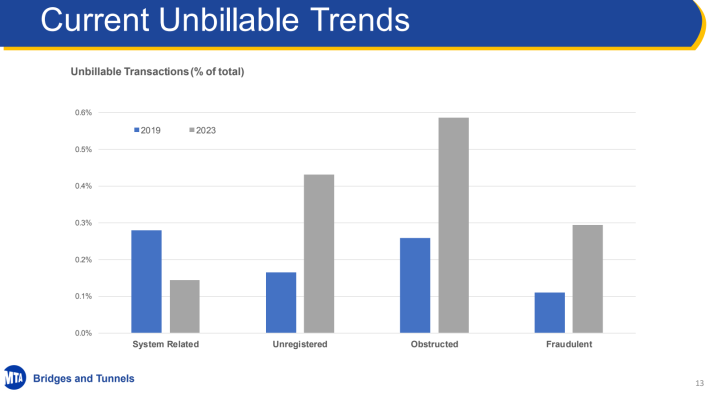
In February, the MTA said that the number of vehicles with unregistered, obstructed or fraudulent license plates rose from 1,565,190 vehicles in 2019 to 4,407,217 vehicles in 2023, a increase of 181 percent. The percentage of unbillable license plates as a percentage of all transactions also rose, from 0.5 percent to 1.3 percent.
